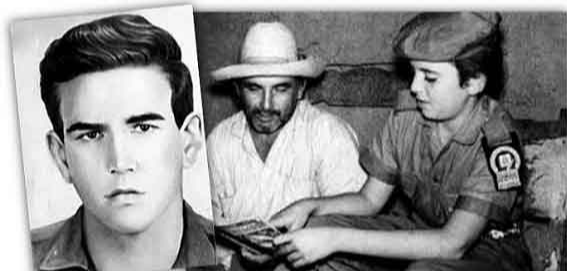Cuba commemorates today the murders committed by criminal gangs in 1961, which claimed the lives of the young teacher Manuel Ascunce Domenech and his student Pedro Lantigua.
These acts sparked widespread outrage, and thousands of young people joined the Literacy Campaign, which was promoted by the revolutionary government at the time to reduce illiteracy and increase the number of students enrolled in schools.
Ascunce, only 16 years old, was a member of the Conrado Benítez brigades, which were composed primarily of young people, some of them almost children, as well as experienced teachers. They were involved in the campaign against ignorance, which culminated in success on December 22, 1961.
Lantigua, on the other hand, was a peasant who joined the militias fighting against banditry. He and his family provided shelter to the young teacher, who helped him with his daily tasks in the fields, and at night, he taught classes by the light of a lantern, which later became a symbol of that noble endeavor.
At the memorial service for the victims of the brutal murder, the then President of the Republic, Dr. Osvaldo Dorticós, denounced the counter-revolutionary gangs who carried out this and so many other murders under the leadership of Miami-based opponents.
Many of the key leaders of the rebel groups came from the repressive apparatuses of the Batista dictatorship, whose officers had been trained at the School of the Americas, established in the Panama Canal Zone by the United States Army.
In this institution, they received training in interrogation techniques and methods of repression to break the will of detainees, which they used before the revolutionary victory of 1959 to suppress revolutionary activity in Cuban camps and cities.


